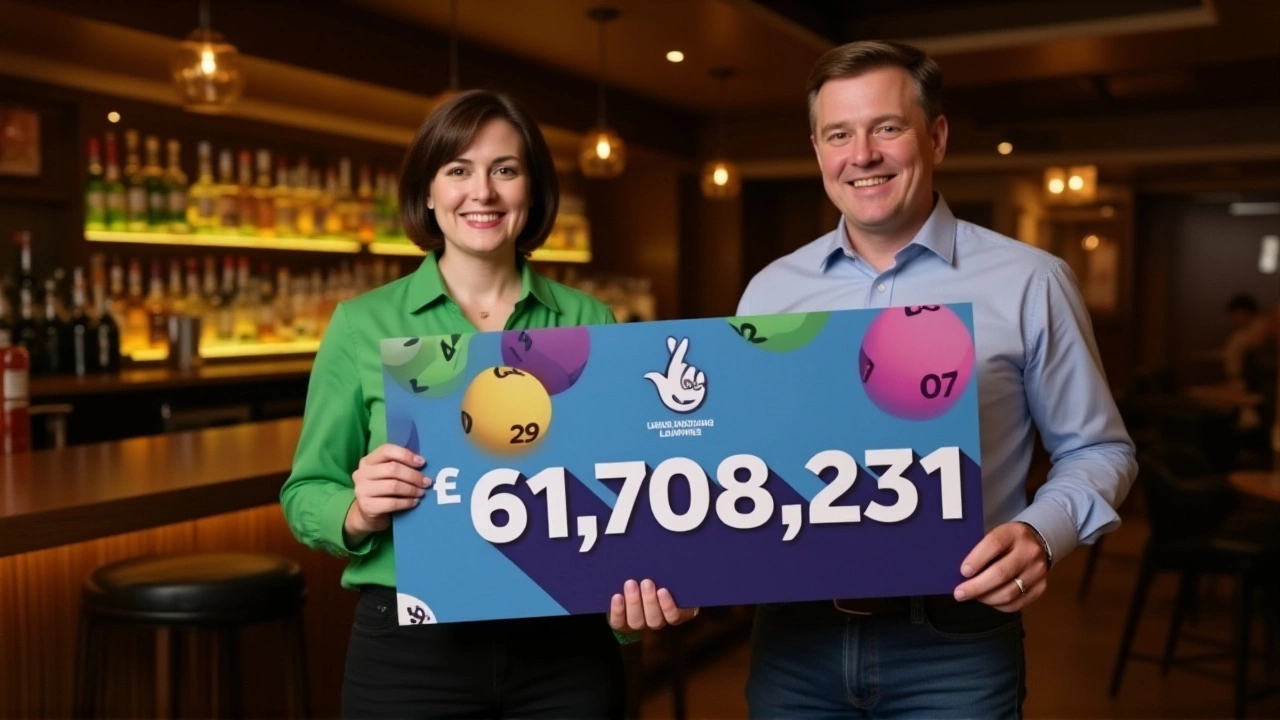When the EuroMillions draw rolled around at 8:45 PM on Tuesday, November 25, 2025, millions across the United Kingdom held their breath — but no one won the £143 million jackpot. The winning numbers — 6, 11, 17, 35, 44 with Lucky Stars 3 and 7 — were announced, yet no ticket matched all seven. The Camelot Group, which operates the UK National Lottery, confirmed the jackpot remained unclaimed, setting the stage for an even bigger prize in the next draw. The Millionaire Maker code, JWGH03530, was also released, but no reports confirmed a winner for that secondary prize either.
How the Jackpot Grew to £143 Million
The massive prize didn’t appear out of nowhere. It was the result of five consecutive rollovers, beginning after the Friday, November 22, 2025 draw where numbers 17, 19, 29, 35, 48 and Lucky Stars 5 and 9 failed to produce a top-tier winner. Each time no one matched all seven numbers, the jackpot rolled over, adding a portion of ticket sales to the prize pool. By Tuesday, the pot had swelled to £143 million — the largest lottery prize offered in the United Kingdom that year, and the fifth-highest EuroMillions jackpot ever. For context, the all-time UK record stands at £195 million, won in 2019.The game’s structure is simple but brutal: pick five numbers from 1 to 50, plus two Lucky Stars from 1 to 12. The odds of winning the jackpot? A staggering 1 in 139,838,160. That’s like correctly guessing a single grain of sand from a beach the size of Cornwall. Yet, every Tuesday and Friday, over 20 million tickets are sold across nine European countries — including France, Spain, and Ireland — feeding the pot.
2025: A Year of Record-Breaking Wins
This wasn’t just another big draw. It was part of a pattern. Earlier in 2025, a French ticket holder scooped up a staggering €250 million (roughly £210 million) in August — the largest prize ever awarded in the EuroMillions history at the time. Just weeks before the November 25 draw, on October 10, a UK player won £25.7 million — a life-altering sum, but barely a footnote compared to what was on offer later that month. And before that, in March, an Austrian winner claimed €130 million. Camelot Group reported that 19 players in EuroMillions history have won over £100 million — and all of them are now part of an exclusive, quiet club.What’s odd? No one ever seems to talk about what happens after they win. The media celebrates the moment — the photo of the trembling winner holding the ticket, the champagne spray, the ‘I can finally retire’ quotes. But then? Silence. That’s the unspoken truth about mega-jackpots: they don’t just change your bank account. They change your relationships, your privacy, your sense of self.

Who’s Playing — And Why?
The United Kingdom remains the most consistent participant in EuroMillions, accounting for nearly 30% of all ticket sales across the network. But the demographic is shifting. While older players still dominate, a new wave of 20-somethings are buying tickets — not as a serious investment, but as a ritual. ‘It’s like a Friday night treat,’ said Sarah Lin, 27, from Manchester, who buys two tickets every draw. ‘I don’t expect to win. But if I do? I’m taking my mum to Bali.’Meanwhile, the Thunderball draw, which runs alongside EuroMillions, offered a £500,000 prize the same night — and that one was claimed. The contrast is telling. One prize is life-changing. The other? Just a nice bonus. And yet, people still line up for both.
What Happens Next?
With the £143 million unclaimed, the prize rolls over again — this time to Friday, November 28, 2025. If no one wins then, it’ll hit £160 million. That’s not just a record for 2025. It’s a potential new all-time high for the UK. And if it goes unclaimed again? The jackpot could climb toward £200 million, putting it within striking distance of the 2019 record.But here’s the twist: EuroMillions has a cap. Once the jackpot hits €240 million (about £205 million), any excess funds are distributed to the next prize tier — meaning someone might win £20 million instead of £200 million. That rule exists to prevent jackpots from ballooning indefinitely. But it also means the clock is ticking. The next draw might be the last chance for a true record-breaker… for now.

Behind the Scenes: How Camelot Manages the Mega-Pots
The Camelot Group doesn’t just sell tickets. It manages the entire ecosystem — from security protocols to prize payouts. Every ticket is digitally logged, and winners have 180 days to claim. For jackpots this size, Camelot works with private security firms to verify claims, often meeting winners in undisclosed locations. ‘We’ve had people cry when they walk in,’ a former Camelot claims manager told us on condition of anonymity. ‘Others just sign the paperwork and leave. No fanfare. No interviews. They disappear.’There’s also the tax angle. In the United Kingdom, lottery winnings are tax-free. That’s a huge draw compared to countries like the US or Spain, where winners can lose up to 45% to taxes. That’s why so many UK players dream big — and why so many international players buy UK-issued tickets.
Frequently Asked Questions
Was the £143 million EuroMillions jackpot claimed on November 25, 2025?
No, the £143 million jackpot went unclaimed after the November 25, 2025 draw. The winning numbers were 6, 11, 17, 35, 44 with Lucky Stars 3 and 7, and no matching ticket was verified by the Camelot Group. The prize rolled over to the next draw on November 28, 2025.
What’s the largest EuroMillions win ever in the UK?
The largest EuroMillions win in the United Kingdom remains £195 million, claimed in 2019 by a single ticket holder. The £143 million prize in November 2025 was the largest of the year but still fell short of that record. The all-time EuroMillions record is €240 million, won in 2022 by a Swiss player.
How does the EuroMillions jackpot rollover work?
If no one matches all seven numbers in a draw, the jackpot rolls over to the next. Each rollover adds a percentage of ticket sales — typically around £10–15 million per draw — until the cap of €240 million is reached. After that, excess funds cascade down to the next prize tier, ensuring someone still wins big even if the jackpot isn’t claimed.
Are EuroMillions winnings taxed in the UK?
No, lottery winnings in the United Kingdom are completely tax-free. This is a major reason why the UK is the largest participant in EuroMillions. In contrast, countries like France and Spain tax winnings at up to 30–45%, making the UK’s system far more attractive to international players.
Why do so many people still play when the odds are so low?
It’s not about logic — it’s about hope. For many, buying a ticket is a small, affordable escape. A £2 ticket offers a fantasy of freedom: quitting a job, paying off debt, traveling the world. Even if the odds are 1 in 140 million, the emotional return feels higher. Plus, with £500,000 Thunderball prizes offered weekly, someone always wins — keeping the dream alive.
What happens if the jackpot reaches £200 million?
If the jackpot hits £200 million (around €240 million), the excess funds are redistributed to the second-tier prize, which pays out £1 million to those matching five main numbers and one Lucky Star. This rule prevents jackpots from growing indefinitely and ensures more people win substantial amounts, even if the top prize isn’t claimed.
